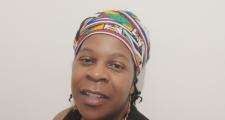What social workers need to know about FGM

Female genital mutilation (FGM) is defined by the World Health Organisation as “all procedures that involve partial or total removal of the external female genitalia, or other injury to the female genitalia for non-medical reasons”.
During a presentation, and as part of Black History Month at the University of West London, we asked how many FGM convictions there had been in the UK since it was made illegal in 1985.
The answer was one.
Just one day later, on 26 October, news broke that the UK had its second conviction under section 3 of the Female Genital Mutilation Act 2003, which carries a maximum sentence of 14 years. This landmark case, the first of its kind, involved a 39-year-old female, Amina Noor, who was sentenced for aiding a three-year-old girl of British nationality during a trip to Kenya in 2006.
FGM legislation has been amended several times, but the most effective addition has been to bring to justice those who take children outside the UK for FGM. Social workers need to be aware of their legal duty, contained in the Mandatory Duty to Report FGM as stated in section 74 of the Serious Crimes Act 2015.
This duty calls upon regulated professionals, including social workers, in England and Wales to inform the police of any “verbally reported” cases, where they are told by a girl that she has had FGM performed on her. They must also report “visually identified cases”, where they observe physical signs that indicate FGM has taken place but there is no apparent mental or physical health justification for the procedure.
FGM is a nuanced practice and subject, which is deeply intertwined into the culture of those communities who practice it. What makes it more difficult to tackle is its hidden and taboo nature and the closeness of potentially practising communities. Despite the language and words that have been used to describe FGM, including “vile, barbaric and primitive”, we know that survivors are still human and as professionals we need to do more in terms of relationship building with affected communities.
After almost 14 years of delivering training and doing awareness raising work, it is disillusioning to find that stigmatising language has resurfaced in the media relating to FGM. Social workers and other professionals must always be aware of the impact they have on a service user or patient to avoid stigmatising language that can disempower and alienate, thereby undoing the positive work done to protect children and often leading to disengagement.
Using words such as inhumane, monstrous, barbaric, senseless, cruel, primitive, horrific, mangle, speechless, disgusted, painful, degrading, terrifying, sickening, devastating and heinous does nothing to further FGM work. This language creates division and does not support collaboration to prevent or stop any cases of FGM.
Here are some tips shared by a social work student, Zelia Camelo, who worked with a child who was affected by FGM. She used a strength-based approach and anti-oppressive approach which involved:
- Asking the child what she knows about FGM
- Using emotion cards, in a language best understood by the child, to gain an understanding of how the child feels about FGM
- Using a series of closed-ended questions such: “Were you aware that you were going to have FGM?” which only give room for yes or no responses.
- Completing the feelings wheel activity (How I feel about my future)
- Utilising the FGM Direct Work Toolkit
Advice to professionals
- It is recommended that social workers adopt an intersectional approach. This means they will work in a way where they not only go with what is commonly known via media but collaboratively with service users and their communities to explore the nuances and the often invisible and silenced narrative. Critical reflection will enable social workers to focus more on the use of self and gain an understanding of FGM communities, affectees and the child at risk. Social workers would benefit from concentrating on continuous reflection of power imbalance, particularly in the areas of gender, sexuality, and class.
- It is a professional responsibility to keep up to date and informed about the latest developments, guidelines, and legal obligations related to FGM. All professionals should receive training to recognise and address cases and to provide support to affectees.
- Be clear on your role: at a minimum this involves explaining, in an honest and direct way, that you are a social worker. You may also have to consider the capacity of people to understand the role and its parameters.
- Be clear on your purpose: state the nature of the agenda, using straightforward, non-jargonistic language that is developmentally appropriate for the service user.
- Reach for feedback: this should take the form of a question that communicates a genuine desire to know the service user’s viewpoint, thoughts, and feelings.
- A more educational, empowering, and intersectional approach can lead to the recognition that women, while often times performing the practice, are not necessarily the gatekeepers of the communities where FGM is practised. There is a need to include men in the narrative around FGM which is often performed to make the female fit to marry. It is important to gain a more nuanced understanding to recognise that the focus needs to be on protecting those at risk, while truly understanding the reasoning behind FGM. There is a tendency among service users to look at social work assessments as personal attacks and this can be because there is a lack of cultural sensitivity when working with communities.
Resources
The National FGM Centre’s FGM Assessment Tool here
FGM Direct Work Toolkit here
Introduction To Female Genital Mutilation (FGM) And Gender-Based Violence here
Anti-oppressive Practice in Action podcast: Apple Spotify Google
BASW’s position statement on FGM here
